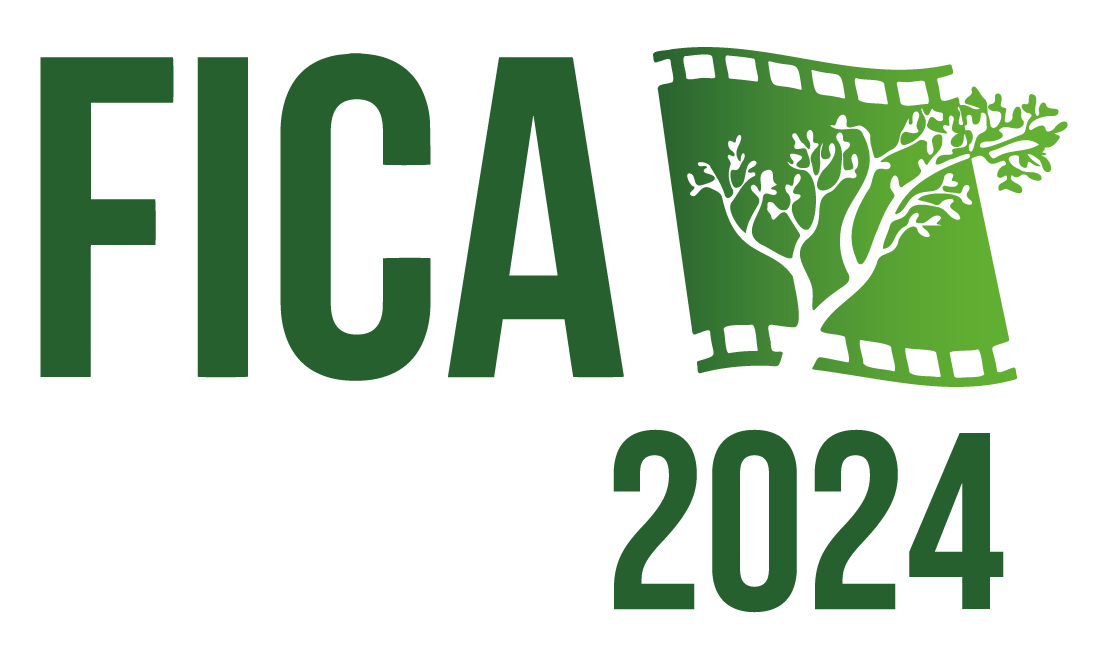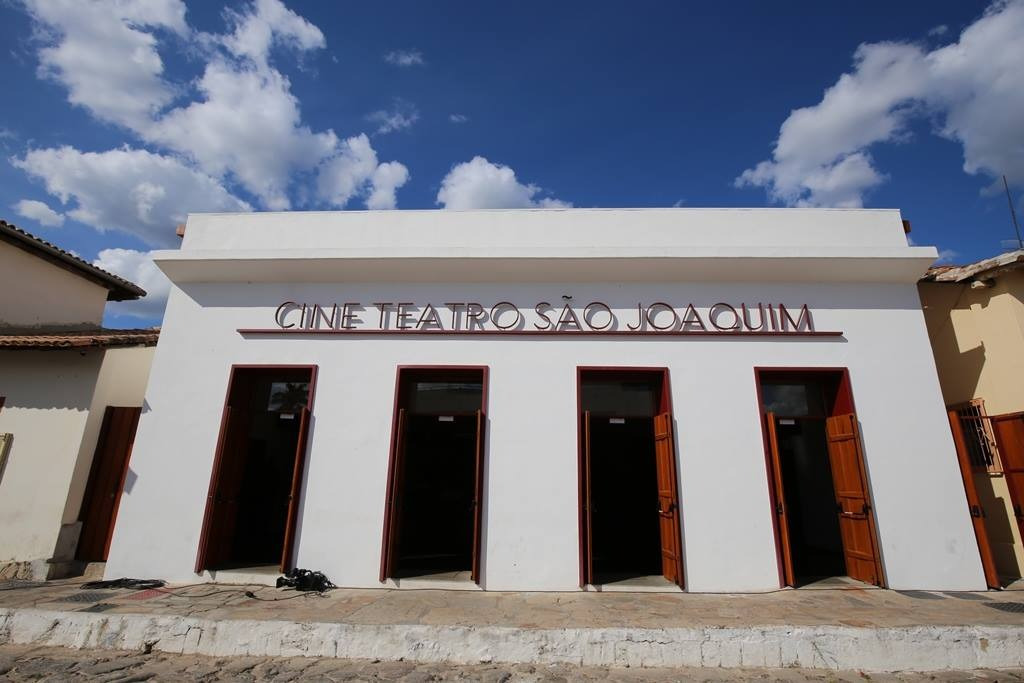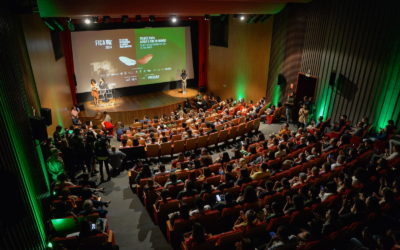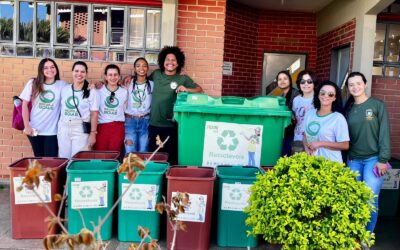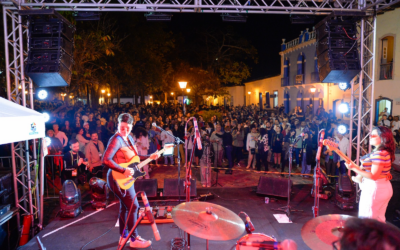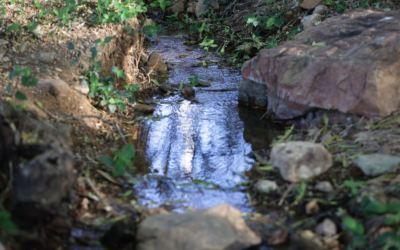Production premieres on Wednesday (12/06) during the 3rd Meeting of Cinema and Audiovisual Schools. Series is coordinated by professors from UniFor and UEG.
The documentary series Ekobé will be launched at the 25th edition of the International Environmental Film and Video Festival (Fica), on Wednesday (12/06), during the 3rd Meeting of Cinema and Audiovisual Schools in the cinema room of the Centro de Memória do Judiciary, in the city of Goiás.
Fica is carried out by the Government of Goiás, through the State Secretariat for Culture (Secult), in co-organization with the Federal University of Goiás (UFG), through the Educational Radio and Television Foundation (RTVE). The festival takes place between the 11th and 16th of June.
Original productions carried out by university TVs at universities in the Central-West and Northeast, the seven episodes of the documentary series Ekobé – life that comes from the earth make up a diverse mosaic of narratives about our experience of passing, staying, inhabiting and transforming this planet. In the current context, when there is an urgent need to rethink the relationships between humanity and the environment, the themes addressed point out challenges, propose solutions and, above all, invite crucial reflections.
The seven episodes last 15 minutes and offer a distinct regional perspective on topics such as urban agroecology and community resilience after disasters. Created in 2023, the series is coordinated by teachers from UniFor and UEG, ensuring a diversity of approaches and narratives that highlight the “life that comes from the earth”, according to the meaning of the name Ekobé in ancient Tupi.
Archaeological Heritage of Palestine of Goiás
Realization: PUCTV Goiás
The documentary shows the work of archaeologist Sibeli Aparecida Viana who, since 2008, has been coordinating research at two archaeological sites on a farm in the municipality of Palestine de Goiás. Using carbon-14 dating, the research showed that human occupation may have occurred at least 10 thousand years ago. In parallel, the documentary shows the fight of Ana Francisca, owner of the farm, against the threat of soy monoculture.
Datasheet: Production: Flávia Costa; Script and editing: Renato Violi; Camera operator: Raimundo Rocha; Image editing: Alexandre Sousa; Technical-scientific consultancy: Prof. Dr. Sibeli Aparecida Viana; Support: IGPA/PUC Goiás; Directed by: Consuelo Gobbi
Fight for housing in Goiânia
Realization: UFG TV
The documentary deals with urban occupations in the capital of Goiás, where the right to housing, guaranteed by the Federal Constitution, is claimed daily by thousands of families. Reports from residents and a researcher on the subject explain different moments in this history of struggle, such as the occupation of Jardim Nova Esperança and Parque Oeste Industrial, and the current moment of the housing movement in the city.
Technical details: Management: Kitia Rubia; Production: Isabella Lima, Janaína de Oliveira, Kamyla Maia; Road map: Ludielma Laurentino; Photography direction: Fernando Brás; Cinematography: Carlos Rildson; Drone footage: Matthew Carol; Production assistant: Carlos Cozac, João Pedro Martins; Edition: Sergio Silva
A Greener City
Realization: TV UFMG
The documentary follows researcher Diana on visits to agroforests and productive backyards in the city of Belo Horizonte, Minas Gerais. Based on dialogue with farmers, as well as monitoring their work routines, the short film reveals the importance and benefits of urban agriculture and agroecology for the population and the environment.
Datasheet: With Arnaldo José de Jesus, Diana Rodrigues, José Ângelo da Silva, Veranilta Alves Costa; Executive production: Ana Fatorelli; Directed by: Beatriz Abrahão, Olívia Resende; Screenplay: Ana Fatorelli, Beatriz Abrahão, Olívia Resende; Research and production: Beatriz Abrahão; Images: Lucas Tunes, Samuel do Vale, Olívia Resende; Sound: Samuel do Vale; Driver: Pedro Campos; Editing: Beatriz Abrahão; Image editing: Marcelo Duarte; Videography: Marianna Teixeira, Matheus Sette (UnBTV); Sound design: Jalver Bethônico; Sound mixing: Bruno Medeiros; Coordination: TV UFMG, Ana Fatorelli; Vice-director CEDECOM UFMG: Flávio Almeida; Direction: CEDECOM UFMG, Fábia Lima; Production: TV UFMG
Indigenous identity in the urban environment
Realization: TV UFMS
According to the 2022 Census of the Brazilian Institute of Geography and Statistics, Mato Grosso do Sul has the third largest indigenous population in Brazil. This documentary portrays how traditional people strengthened their identities in urban villages, the search for fundamental rights, the challenges faced by young indigenous people when entering higher education and how the Federal University of Mato Grosso do Sul works with initiatives for the entry and retention of indigenous students.
Datasheet: Director of the Social and Scientific Communication Agency: Rose Mara Pinheiro; Programming director: Crislaine Oliveira and Mylena Rocha; Production: Crislaine Oliveira and Oswaldo Ribeiro; Editing: Nicolas Hadson and Amanda Cecatto; Interviews: Alíria Aristides, Bianka Macário and Lúcia Santos; Images: Josiel Silva, Marcos Gonçalves and Thiago Stiimer
Quilombo Kalunga on scene
Realization: UNB TV
Theater as a means of communication, culture and resistance in the Kalunga quilombola territory is the theme of the UnBTV episode in the Ekobé series. In a quilombola school, teachers trained in Rural Education at UnB rehearse a play about the history of the community. During the rehearsal, they watch the performance of the group Kalunga Vozes do Sertão Lutando por Transformação (VSLT), a group that has existed for ten years, in the city of Cavalcante. The history of Kalunga quilombola resistance in the territory is the connecting link between the two experiences.
Datasheet: Production: Matheus Sette, Rafael Villas Boas and Raissa Ferreira; Director: Matheus Sette; Images: Rodrigo Gomes, Raissa Ferreira, Matheus Sette and Vinícius Acioli; Direct sound: Vinicius Acioli; Editing: Matheus Sette
Submerged lives
Realization: UEG TV
In 1986, the construction of dams began on the Tocantins and Maranhão rivers, giving rise to a hydroelectric plant and the Serra da Mesa Lake. In 1996, the dam began to flood and reached its maximum level in 1998. For this to happen, farms, villages, houses, cemeteries and archaeological sites were submerged. Indigenous populations, quilombolas and rural communities left their lands and moved to cities. In this episode, we will learn about the story of Sinvaline Pinheiro and Abadia Alves, residents of the region, who bring memories of life before the lake and report the impacts caused to the environment.
Datasheet: Directed by: Marcelo Henrique da Costa and Ana Paula Ladeira Costa; Production: Marcelo Henrique da Costa; Ana Paula Ladeira Costa; Visual identity: Juan Ospina; Production assistant: Henrique S. Silva; Research: Henrique S. Silva; Ana Paula Ladeira Costa, Marcelo Henrique da Costa; Screenplay: Ana Paula Ladeira Costa, Marcelo Henrique da Costa; Photography direction: Leonardy Sales; Sound: Mikaela Pasa; Editing: Alex Fróes
Mangrove Roots
Realization: UniFor
“Raízes do Mangue” reflects on human occupation of the land based on the story of Dona Neusa, a resident of the Boca da Barra community, in the Sabiaguaba neighborhood, located in an Environmental Protection Area in Fortaleza-CE. The narrative reverberates how nature and its people resist real estate speculation.Datasheet: Testimony: Maria Neusa Lima; Director: Charlotte Cruz; Assistant Director: Dainah Aguiar; Screenplay: Charlotte Cruz and Mateus Costa; Production: Charlotte Cruz, Dainah Aguiar and Mateus Costa; Director of Photography: Tom Vital; Photography Assistant: Ícaro Reis; Drone images: Ares Soares; Sound Technician: Guilherme Daniel Alecrim and PL Rebouças; Making Off: Gabriel Lima; Advisors: Lola Melo, Luiza Ester and Wilton Martins; Technical Support: Lucas Leal, Marcelo Gomes and Cícero Alexandre; Editing: Julia Rabay and Marcelino Oliveira; Acknowledgments: Antônio 'Bem-Ti-Vi', Roniele Suíra and Lucas Rocha; Editing and Finalization Coordination: Gazzineu Marcus; Technical Coordination: Hélio Viana; Production Coordination: Lola Melo; Journalism Coordination: Luiza Ester; Executive Secretary: Tamires Andrade; General Management TV Unifor: Max Eluard; Unifor Communication, Marketing and Commercial Director: Ana Quezado; Dean of Unifor: Randal Martins Pompeu.
